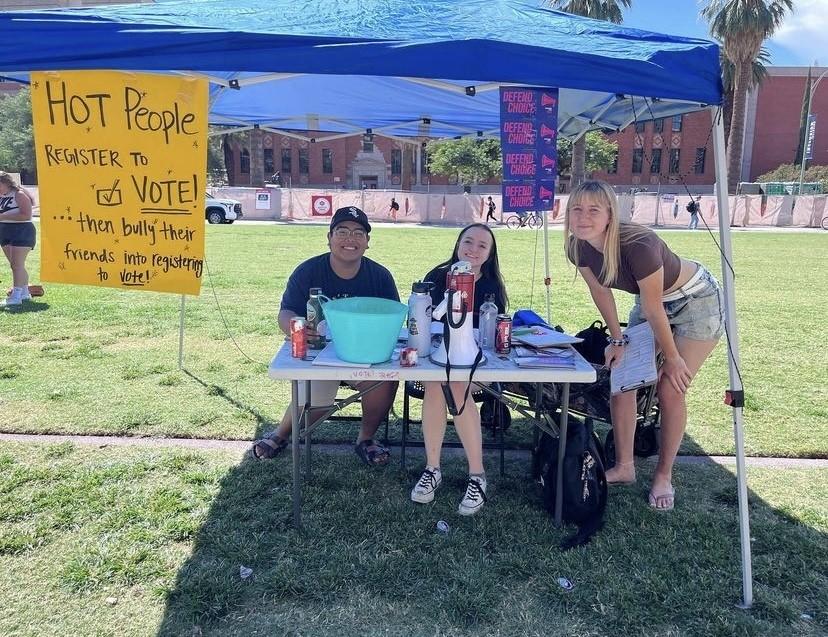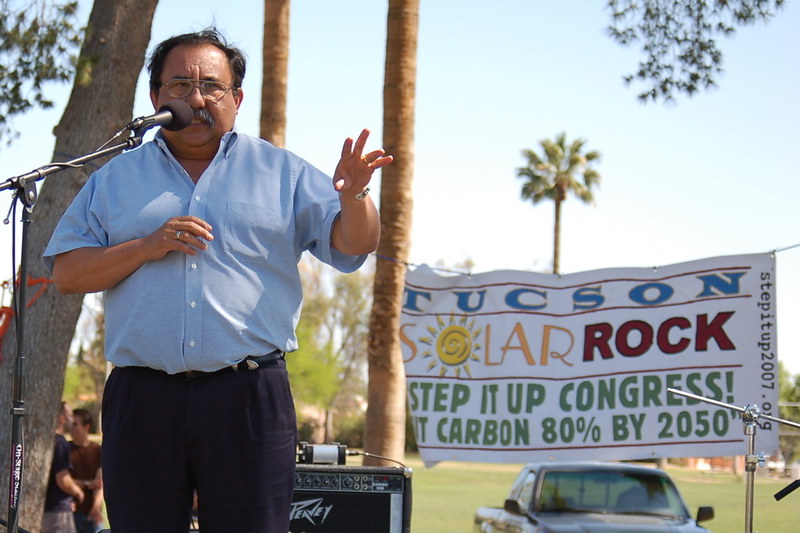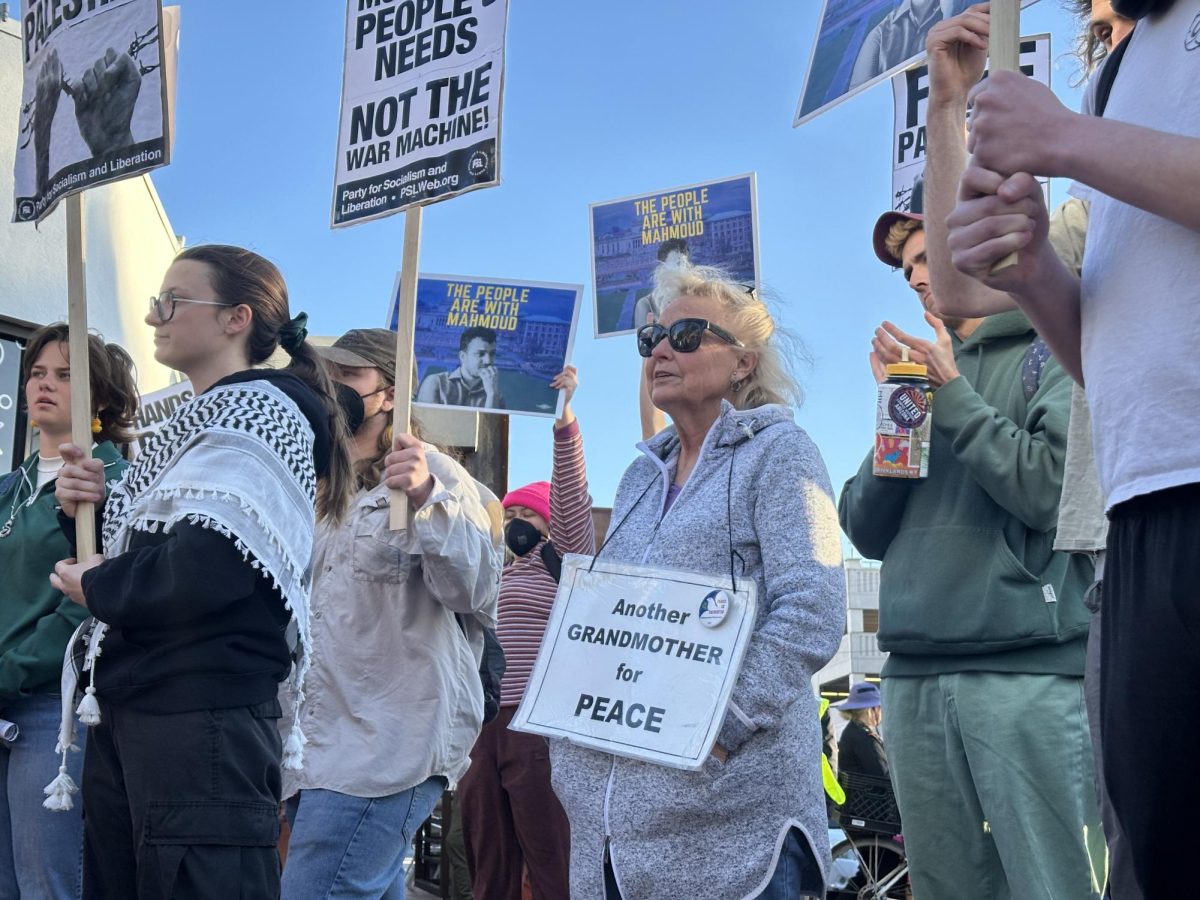Any student strolling the University of Arizona’s campus has likely been stopped by someone, maybe a young student or maybe an older adult, with a clipboard and perhaps a lanyard. Sometimes they want you to sign a petition, but as the November midterm elections approach, it’s all about voter registration.
That’s why so many students are frequently greeted with the age-old question: Are you registered to vote in Arizona?
While some students may not appreciate an interruption in their hustle to class, the people stopping them are okay with rejection because it’s a cause they really care about.
College student voter turnout has been on the rise in recent years. Nationwide, numbers were higher than ever in the 2020 presidential election.
According to the National Study of Learning, Voting, and Engagement’s 2014 and 2018 Campus Report for the UA, voter turnout in the 2018 midterm elections was 35.6%. This was a significant increase from 2014, but it also means that nearly two-thirds of eligible students did not vote.
The people registering voters come from a variety of organizations. One of the most active is Mission for Arizona, a statewide campaign by the Arizona Democratic Party that is working to re-elect Sen. Mark Kelly. They have groups run by students working throughout the state.
Lately, the University of Arizona chapter has set up shop under a tent on the UA Mall, encouraging passersby to register to vote, especially during the week of Sept. 20, National Voter Registration Day.
Some of their volunteers are UA alumni, like Mariette Francis. She and fellow volunteer Yvonne Foucher were outside the Student Union Memorial Center recruiting a couple of voters.
They explained that out-of-state students are able to register to vote in Arizona.
“Here in Arizona, we are a swing state, so we need as many people as possible to vote here,” Foucher said.
Foucher is a self-described “concerned citizen” who has only recently begun registering young people to vote but says it’s her passion.
“We only have two-thirds of all Americans that vote in our elections, and that’s despicable,” she said.
Foucher estimated that about half the student body is knowledgeable about voting issues but that many simply don’t care and even lie about being registered.
“Unfortunately, it isn’t maybe until later they realize how important voting is because they’re so focused right now on school,” Francis said.
Carter Everly is also a volunteer for Mission for Arizona and a sophomore studying sociology and geography. He has just started volunteering for them this semester.
“It’s honestly really fun,” he said. “I love doing it; it makes me feel better. I think that people don’t like me as much when I do it, but I really enjoy doing it.”
Everly added that it can be difficult to get people to listen to them but wants to ensure that young people’s voices are heard.
“Some people don’t w ant to be bothered while they’re walking, for sure, but I think it’s worth it to get people actually registered,” he said.
Though Mission for Arizona is run by the Democratic party, the volunteers stressed that voter registration is non-partisan.
Another on-campus club involved in the movement is Arizona Asian American Native Hawaiian Pacific Islander Students for Equity. They’ve been on the Mall finding students to register, as well.
Junior neuroscience and cognitive science major Avneet Kaur is one of the students helping out.
“Our club SFE, Students for Equity, is non-partisan, so everyone is welcome to register to vote regardless of your party affiliation,” Kaur explained. “It’s community outreach; we want people to register to vote, especially because the elections are coming up. I think everyone’s voice matters, and it’s very crucial that everyone votes.”
Both SFE and Mission for Arizona specifically mentioned women’s reproductive rights as a reason people should be voting.
“The topics that are currently being voted on impact a huge part of the population, especially women with abortion rights and contraception rights,” Kaur said. “We’re just trying to get people to be more active.”
She said they also got a lot of voters registered earlier in the semester, but things have slowed.
“We’ve noticed a lot of college students, they’re very hesitant to register to vote,” she said. “There’s a lot of people who … [are] not open to registering at all, and that’s been a challenge. Some people will say snarky comments, which is a little discouraging, but there are people who will listen to you.”
Kaur said she believes that college students need to use their voice, especially since they will be most affected by the future policy.
“College students, I don’t know if this sounds kind of cliché, but we’re the next generation that’s gonna be running things,” she said. “So it’s important for us to be more active in our political system and get what we want out of the government.”
There have also been canvassers from FieldWorks, a nationwide organization that assists Democratic campaigns. They can be spotted in green lanyards recruiting potential voters outside the UA Main Library.
The deadline to register to vote in Arizona is Oct. 11. Of course, registration is only half the battle.
In 2018, over 10,000 UA students who were registered to vote didn’t actually cast their ballot.
This time around, early voting begins on Oct. 12, and election day is Nov. 8. Students can confirm their registration, find their polling place and more at my.arizona.vote.
Follow Erika Howlett on Twitter








